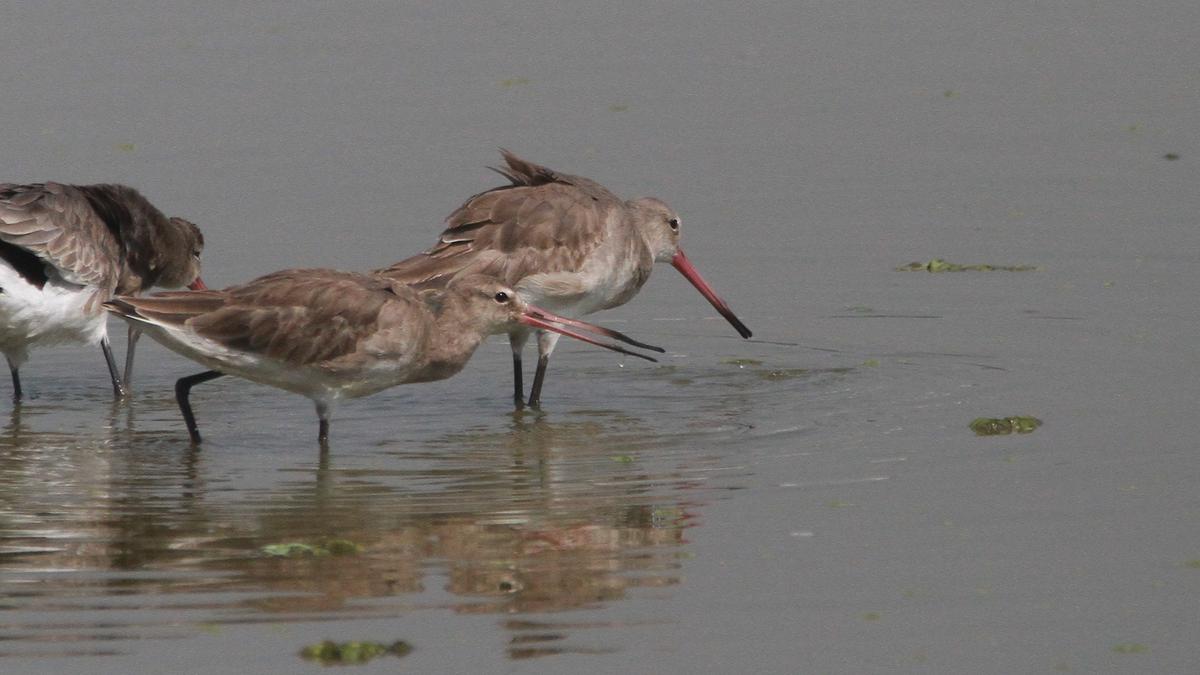Context
-
Black-tailed godwit (limosa limosa) foraging for food at the Perumbakkam wetland, which is part of the Pallikaranai Marsh.
About Black-tailed godwit
- In the wetlands in and around Chennai, the black-tailed godwit is somewhat like Alfred Noyes’ Highwayman, evocative of a persistence mirrored in the line.


Courtesy: The Hindu - During the winter migratory season, the species shows up in impressive numbers at the Perumbakkam wetland, which is actually a stage and a showcase for the birds, both migratory and resident, of the Pallikaranai marsh.
- All cross-border groups formed for the protection of migratory species at risk emphasise this inter-connectedness.
- The black-tailed godwit is covered by the Agreement on the Conservation of African-Eurasian Migratory Waterbirds (AEWA).
- It is a member of the godwit genus, Limosa. There are four subspecies, all with orange head, neck and chest in breeding plumage and dull grey-brown winter coloration, and distinctive black and white wingbar at all times.
- IUCN; near-threatened
Back to Basics
Agreement on the Conservation of African-Eurasian Migratory Waterbirds
- The Agreement on the Conservation of African-Eurasian Migratory Waterbirds, or African-Eurasian Waterbird Agreement (AEWA) is an independent international treaty developed under the auspices of the United Nations Environment Programme’s Convention on Migratory Species.
- It was founded to coordinate efforts to conserve bird species migrating between European and African nations, and its current scope stretches from the Arctic to South Africa, encompassing the Canadian archipelago and the Middle East as well as Europe and Africa.
- The agreement focuses on bird species that depend on wetlands for at least part of their lifecycle and cross international borders in their migration patterns.
- The Agreement is subject of and governed by international law and its rules comply with the provisions of the Vienna Convention of the Law of Treaties.
- The Agreement is governed by its Meeting of Parties, which is the principal decision-making body established in accordance with Article VI of the Agreement. The Agreement Secretariat convenes ordinary sessions of the MOP at intervals of not more than three years, unless the Meeting of the Parties decides otherwise.
- The Secretariat is administered by the United Nations Environment Programme (UNEP).
Visit Abhiyan PEDIA (One of the Most Followed / Recommended) for UPSC Revisions: Click Here
IAS Abhiyan is now on Telegram: Click on the Below link to Join our Channels to stay Updated
IAS Abhiyan Official: Click Here to Join
For UPSC Mains Value Edition (Facts, Quotes, Best Practices, Case Studies): Click Here to Join
